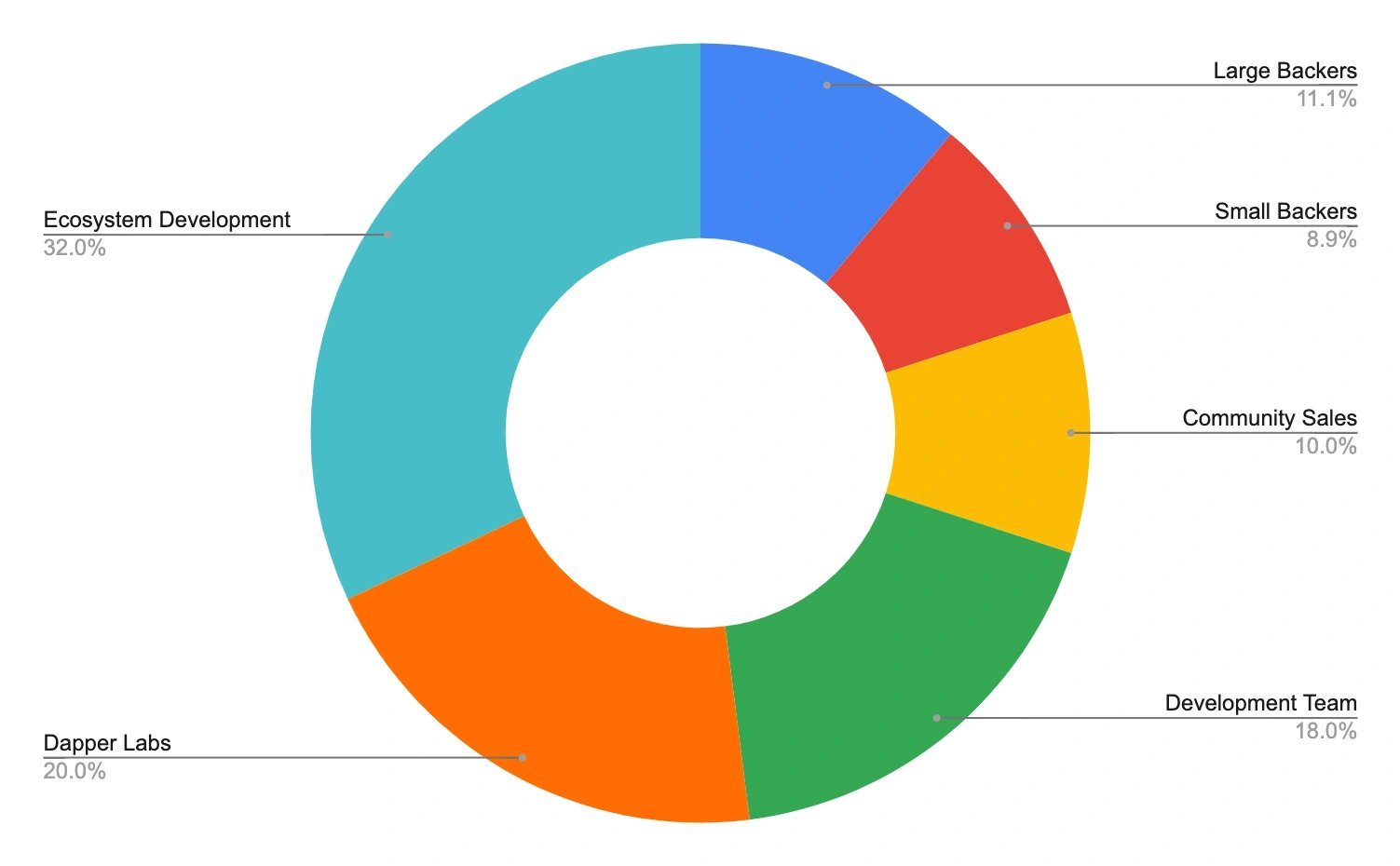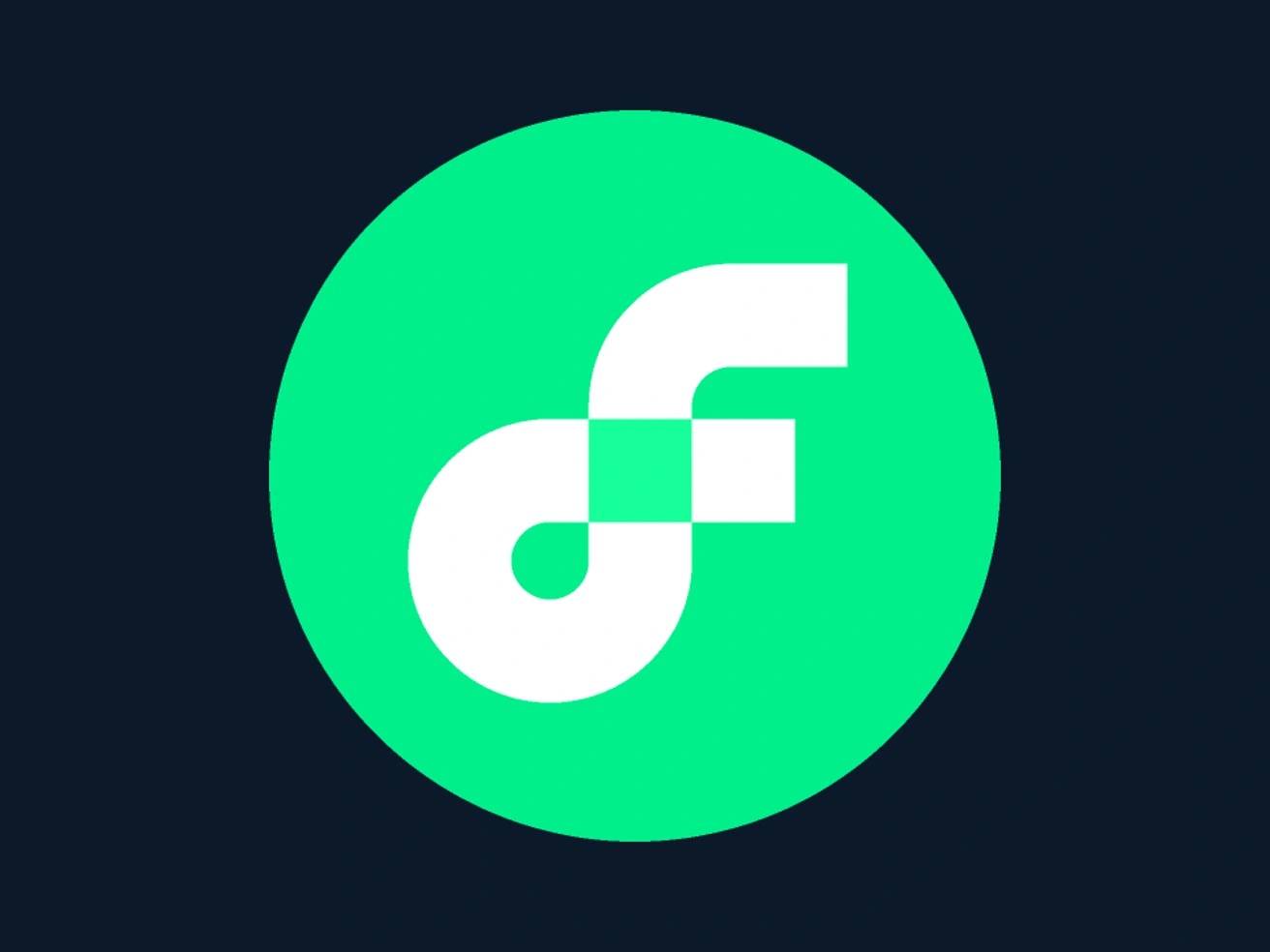위키 구독하기
Share wiki
Bookmark
FLOW Token
0%
FLOW Token
FLOW 토큰은 크립토키티를 만든 회사인 Dapper Labs에서 만든 분산형 레이어 1 블록체인인 Flow 블록체인의 기본 암호화폐입니다. FLOW는 네트워크에 구축된 탈중앙화 애플리케이션(dApp) 내에서 결제에 사용됩니다. 또한 Flow에서 애플리케이션을 구축하는 데 필수적인 스마트 계약의 개발, 배포 및 생성을 용이하게 합니다. [1]
개요
FLOW는 Flow 블록체인의 기본 토큰으로, 거래 수수료, 스테이킹, 보상 및 데이터 스토리지를 포함한 네트워크의 핵심 운영을 지원하는 데 사용됩니다. Flow의 지분 증명 합의 모델에서 스테이킹 자산 역할을 하여 검증자 참여 및 위임을 가능하게 합니다. FLOW는 또한 애플리케이션 내에서 교환 매개체, 보조 토큰에 대한 담보 및 온체인 활동을 위한 준비 자산으로 기능합니다. 또한 거버넌스를 위한 것이지만 완전한 온체인 거버넌스는 아직 활성화되지 않았습니다. [2]
유틸리티
FLOW 토큰은 Flow 블록체인의 핵심 유틸리티 자산으로 기능하여 네트워크 전반에 걸쳐 여러 중요한 활동을 지원합니다. 검증자와 위임자 모두에 의한 스테이킹에 사용되며 스테이킹 및 프로토콜 보상을 분배하는 매개체 역할을 합니다. FLOW는 또한 스마트 계약 배포, 계정 생성 및 자산 전송과 관련된 거래 수수료를 지불하는 데 사용되는 기본 통화입니다. 또한 사용자는 온체인 스토리지를 예약하려면 최소 FLOW 잔액을 보유해야 합니다.
FLOW는 또한 탈중앙화 애플리케이션 내에서 교환 매개체 역할을 하고 DeFi 플랫폼에서 담보 역할을 하며 거버넌스 참여에 활용됩니다. 피어 투 피어 결제를 용이하게 하고 토큰 생성을 지원하여 개발자가 Flow에서 앱, 게임 및 스마트 계약을 구축하는 데 필수적입니다. 브리징 자산으로서 FLOW는 덜 자주 거래되는 토큰 쌍 간의 유동성을 가능하게 합니다. 광범위한 유틸리티는 개발자, 사용자 또는 검증자를 막론하고 모든 네트워크 참가자가 광범위한 네트워크 기능에서 FLOW와 상호 작용하도록 보장합니다. [2]
토큰노믹스
FLOW의 총 공급량은 12억 5천만 개이며 다음과 같이 할당됩니다. [6]
- 생태계 펀드: 32%
- 사전 출시 후원자 및 커뮤니티 판매: 30%
- Dapper Labs: 20%
- 개발팀: 18%

스테이킹
Flow 블록체인에서 스테이킹하려면 검증자 노드가 네트워크 운영에 참여하기 위해 FLOW 토큰을 보안 예치금으로 잠가야 합니다. 이 결합된 예치금은 검증자가 악의적인 행동을 하는 경우 삭감될 수 있으며, 이는 한 당사자가 여러 검증자로 가장하여 네트워크를 제어하려는 시빌 공격과 같은 공격을 억제하는 역할을 합니다. 이 메커니즘은 프로토콜의 무결성 및 탈중앙화를 유지하는 데 필수적입니다.
Flow는 인플레이션과 거래 수수료의 조합을 통해 검증자 보상을 분배합니다. 보상은 2020년 12월에 도입되었으며 스테이커에게 전액 할당되어 적극적으로 참여하는 사람들의 토큰 희석을 방지합니다. 프로토콜은 역할 기반 보상 계수를 사용하여 네트워크의 요구 사항의 균형을 맞춥니다. 특정 노드 유형이 과소 대표되는 경우 적절한 스테이크 분배가 달성될 때까지 보상률이 증가합니다. 검증자는 전체 보상을 받기 위해 운영 지침을 따라야 하며, 규정 준수 실패에 대한 처벌이 있습니다. [6]
거버넌스
Flow 거버넌스는 오프체인 및 온체인 메커니즘을 결합하여 완전한 탈중앙화로 점진적으로 전환합니다. 처음에는 핵심 기여자가 개발을 주도하고 노드 운영자가 제안된 업그레이드를 검토합니다. 커뮤니티 회원은 GitHub를 통해 개선 제안서를 제출할 수 있습니다. 초기 온체인 투표는 처음에는 구속력이 없는 신호로 시작되었지만 FLOW 보유자는 의견을 표명하여 향후 프로토콜 개발에 정보를 제공하고 향후 프로토콜 개발에 정보를 제공할 수 있습니다.
장기적으로 거버넌스는 DAO와 대표 위원회를 포함하는 시스템으로 전환됩니다. 토큰 보유자는 운영 결정을 내리는 위원회 위원을 선출하지만 이러한 결정은 더 넓은 커뮤니티에서 공개적으로 이의를 제기하거나 무효화할 수 있습니다. 거버넌스 결정은 생태계 결정(예: 위원회 선거), 프로토콜 매개변수(예: 검증자 좌석 수) 및 프로토콜 업그레이어의 세 가지 범주로 나뉩니다. 프로토콜 업그레이드는 드물고 광범위한 합의가 필요하지만 네트워크에 대한 광범위한 변경이 가능합니다. [7]
잘못된 내용이 있나요?
